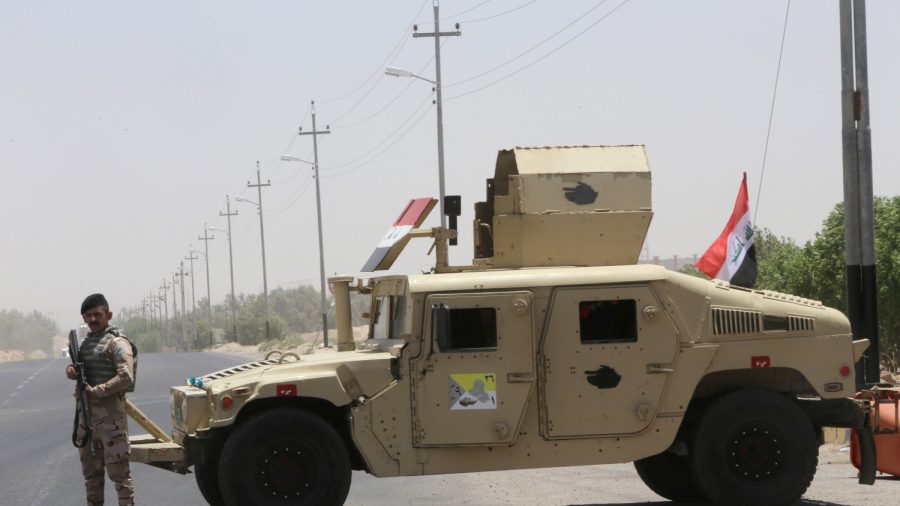Iraqi officials say two rockets have landed on oil company sites in Iraq’s southern Basra province, one landing near the facilities of a Turkish company just hours after a similar attack on an Exxon Mobil Corp. site that injured three local workers, one seriously.
There were no immediate reports of damage at the service company in the compound in Burjesia. The company is affiliated with British Petroleum.
The security and oil officials said the rockets fired were Katyushas. They spoke on condition of anonymity because they were not authorized to brief the media.
Iraqi officials said they are investigating the source of the attack.
The first rocket landed to the south, near the facilities of the Iraqi Drilling Company, not far from the site of energy giant Exxon Mobil. Some 40 staff for the energy giant Exxon Mobil Corp. have been evacuated from the oil-drilling site. Immediately after the attack, 16 Exxon Mobil workers were evacuated. Another 24 workers were later evacuated.
These attacks exactly the capability #Iran’s #IRGC has been building for years”
-Attacks they direct but proxies conduct to provide deniability; &
-Which everyone knows was them but reluctant to admit because then something has to be done about it https://t.co/wTcl7gSzt5
— Marco Rubio (@marcorubio) June 19, 2019
The officer tells The Associated Press that security reinforcements have been deployed to the site after a rocket hit before dawn Wednesday near the location of the Iraqi workers, wounding three. Iraqi officials said a Katyusha rocket hit the site in southern Basra province, striking a camp housing workers for Exxon Mobil and other foreign companies.
There was no immediate claim of responsibility for the attack near Iraq’s southern city of Basra, the fourth time in a week that rockets have struck near U.S. installations.
Three previous attacks on or near military bases housing U.S. forces near Baghdad and Mosul caused no casualties or major damage. None of those incidents were claimed.
An Iraqi security source said it appeared that Iran-backed groups in southern Iraq were behind the Basra incident.

“According to our sources, the team (that launched the rocket) is made up of more than one group and were well trained in missile launching,” the security source said.
He said they had received a tip-off several days ago the U.S. consulate in Basra might be targeted but were taken by surprise when the rocket hit the oil site.
Abbas Maher, mayor of the nearby town of Zubair, said he believed Iran-backed groups had specifically targeted Exxon to “send a message” to the United States.
Iranian hostility has risen since the United States withdrew Washington from a 2015 nuclear deal with Iran and other world powers in May last year.
U.S. sanctions have since reimposed and extended on Iran. Tehran has threatened to abandon the nuclear pact unless other signatories act to rein in the United States.
The U.S. face-off with Iran reached a new pitch following attacks on oil tankers in the Gulf in May and June that Washington blames on Tehran. Iran denies any involvement.

Escalation Feared
While the long-time foes say they do not want war, the United States has reinforced its military presence in the region and analysts say violence could nonetheless escalate.
Some Western officials have said the recent attacks appear designed to show Iran could sow chaos if it wanted.
Iraqi officials fear their country, where Iran-backed Shi’ite Muslim militias operate in close proximity to some 5,200 U.S. troops, could become an arena for escalation.
The United States has pressed Iraq’s government to rein in Iran-backed paramilitary groups, a tall order for a cabinet that suffers from its own political divisions.

Reuters contributed to this report.

